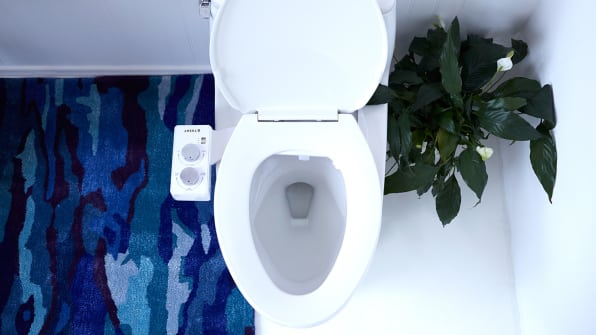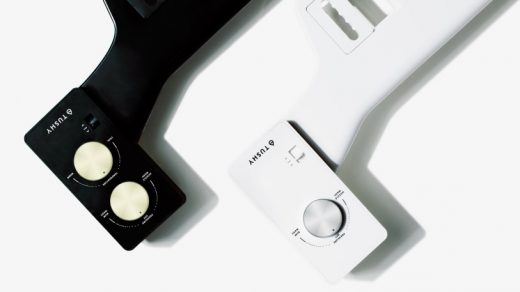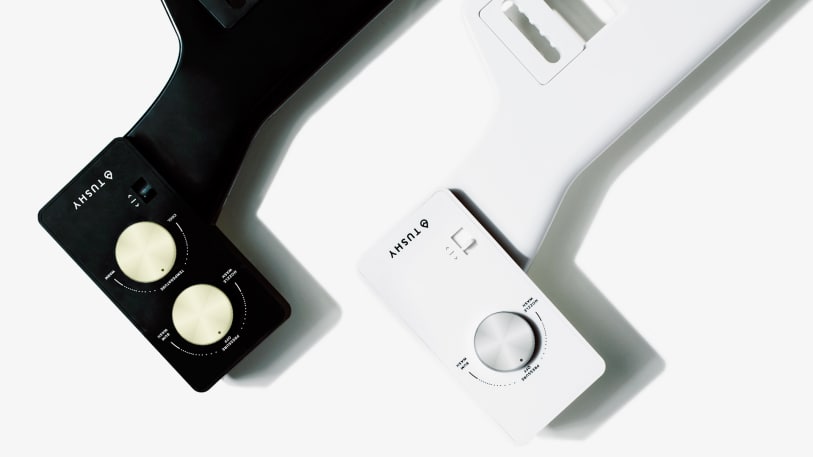Newly Flush With Cash, Can Tushy Make Us Believe In Bidets?
Everyone at Tushy has their own story of how they fell in love with the bidet. CEO Monica Pereira realized their value while spending time in Bolivia, where toilet paper usually can’t be flushed down the toilet. And founder Miki Agrawal has her Japanese and Indian parents to thank for her bidet education.
“Both cultures use bum washes or bidets,” Agrawal told Fast Company. “In the Japanese culture, they have very elaborate ones that sing to you when you walk by. But in India, they have the lota, which is the bum wash. It’s a very normal thing for every household to have. If you asked them, ‘Is a bidet a nice-to-have or a must-have,’ they would laugh at you.”

In the U.S., however, people have used toilet paper to tidy up down there for 160 years (since 1857, when it was invented by Joseph Gayetty in New York City) which means Tushy’s challenge is to be something of a bidet missionary. The company’s pitch is a minimalist bidet attachment that starts at $69; the device clips under your toilet seat and can be hooked up to a toilet’s water supply with a splitter that’s included with your Tushy purchase. Today, Tushy announced a new seed funding round led by Propulsion Capital, which should help the startup scale marketing and launch new products like organic bamboo toilet paper.
Agrawal is a purveyor of products for your nether regions, or as she dubs it, the “three Ps”: periods, pee, and poop. She is best known for being the brains behind the popular period-proof underwear brand Thinx, which recently introduced organic tampons and period-proof activewear; come June, Thinx will also start selling a reusable tampon applicator.
After fielding questions from Thinx customers about whether the panties could also hold urine, Agrawal created Thinx’s sister company, Icon, to help address the oft-ignored issue of incontinence. “It’s not a one-week-a-month problem,” she says. “It’s an everyday problem.” Icon’s pee-proof underwear are supposed to hold up to six teaspoons of urine. For each pair sold, Icon helps fund obstetric fistula operations for women in developing countries; to date, Icon has funded 71 free surgeries, through a partnership with the Fistula Foundation.

All three of the companies founded by Agrawal take aim at taboos and seek to make customers conscientious of the waste we produce, be it through toilet paper or female hygiene products. But unlike Tushy, Thinx and Icon were introducing products that either didn’t exist or had been executed poorly by a handful of companies. Using Thinx and Icon’s products doesn’t require a change in something as fundamental and pedestrian as how people wipe their butts.
Pereira said one of the reasons she took on the role of Tushy CEO is exactly that—she was intrigued by the idea of changing behaviors, something she first encountered while working with Agrawal on Thinx.
“As a marketer and a product manager, I loved the challenge of not just selling someone another pair of shoes, but actually shifting culture and mindset,” Pereira said. “That opportunity was very clearly there with Tushy, as well . . . I wanted to make and sell a product that was really meaningful. And with digital marketing, the way it has evolved over the last five years has become very formulaic, so here’s a way for me to be creative.”
Tushy obviously isn’t the first company to make a bidet. But Agrawal seems to have plenty of marketing mojo, if Thinx’s Wes Anderson-hued ad campaigns are anything to go by. Agrawal is confident that with products like its bamboo towels—which are already available—and, soon, bamboo toilet paper, Tushy can appeal to people who are weirded out by the idea of spraying water all over their posterior.
“We’re saying: Instead of using trees, here’s bamboo,” Agrawal said. “Reduce your carbon footprint 80% by using a little bit of toilet paper, instead of all that toilet paper. Feel better about yourself.”
Fast Company , Read Full Story
(89)














